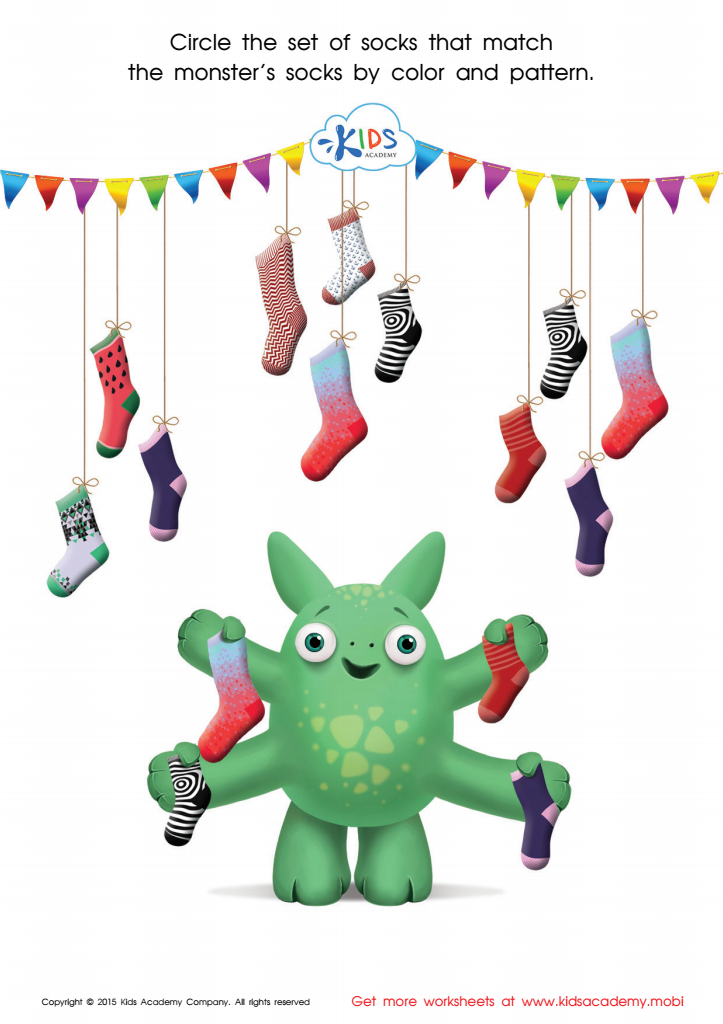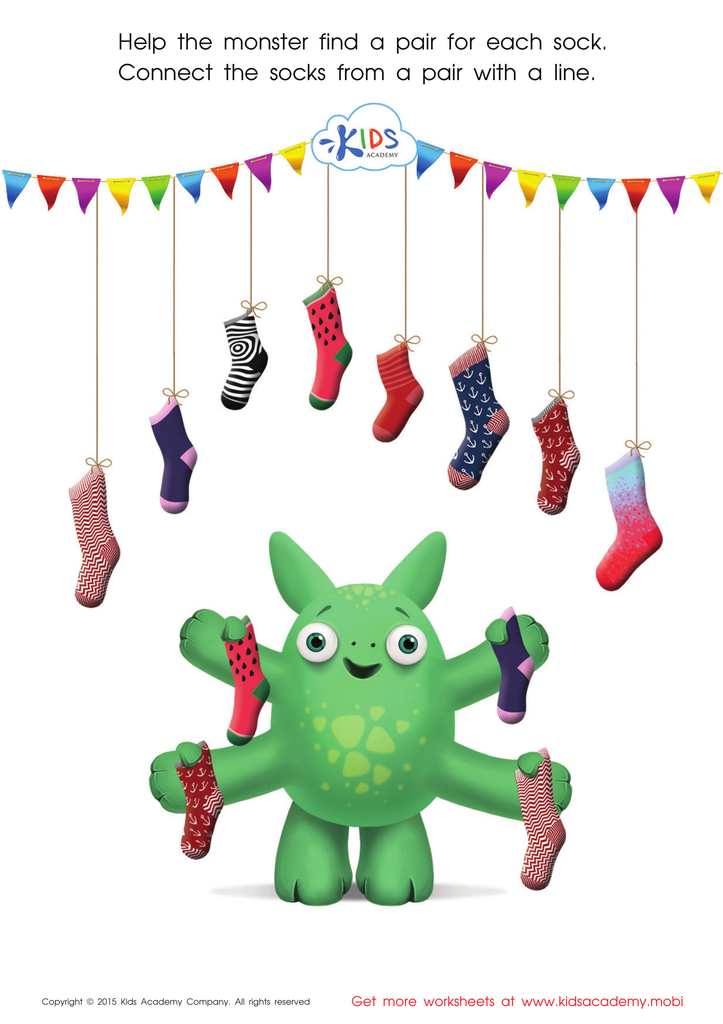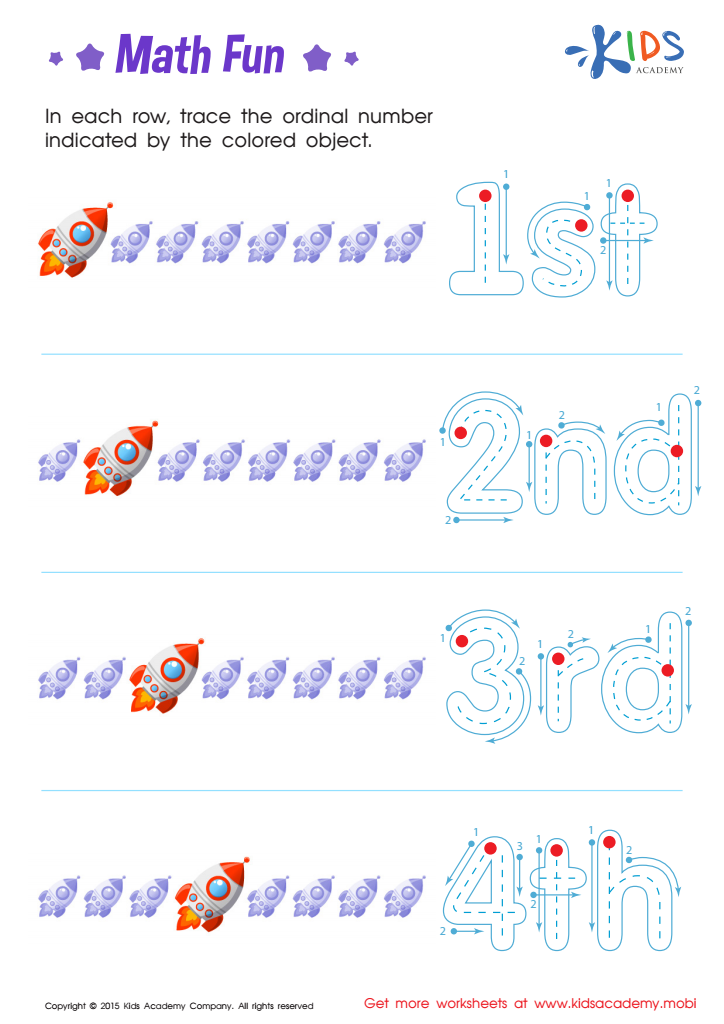Color recognition Addition & Subtraction Worksheets for Ages 3-4
3 filtered results
-
From - To
Enhance your child's learning with our engaging Color Recognition Addition & Subtraction Worksheets, designed specifically for Ages 3-4. These educational worksheets from Kids Academy combine fundamental math skills with color recognition, making learning fun and effective. Through colorful activities and simple problems, young learners develop their ability to add and subtract while identifying and distinguishing different colors. Ideal for preschoolers, these worksheets foster essential skills such as fine motor development, concentration, and cognitive abilities. Help your child build a strong foundation in math and color recognition with our expertly crafted, age-appropriate materials.


Sort the Monster's Socks Worksheet


Math Matching Game: Monsterв's Socks Worksheet


Ordinal Numbers: Math Fun Worksheet
Parents and teachers should prioritize color recognition alongside basic addition and subtraction for children ages 3-4 because these skills form the foundation for more advanced learning and cognitive development. Color recognition enhances a child's language skills, as they learn to identify, articulate, and remember different colors. This process aids in boosting their observational skills and memory, which are crucial for academic success.
Introducing basic addition and subtraction at an early age familiarizes children with numbers and counting, fostering mathematical thinking and problem-solving abilities. When toddlers engage in activities that combine these foundational skills, such as sorting colored objects or counting colored blocks, they develop both their cognitive and fine motor skills simultaneously. This multisensory approach not only makes learning more engaging and enjoyable but also reinforces neural connections in young brains, promoting long-term retention.
Moreover, early exposure to these concepts helps build confidence and a positive attitude towards learning. As children master fundamental skills, they are more likely to approach future educational challenges with enthusiasm and curiosity. Overall, nurturing color recognition and arithmetic skills are crucial steps in supporting a child's intellectual growth, creativity, and readiness for school.
 Assign to My Students
Assign to My Students





















